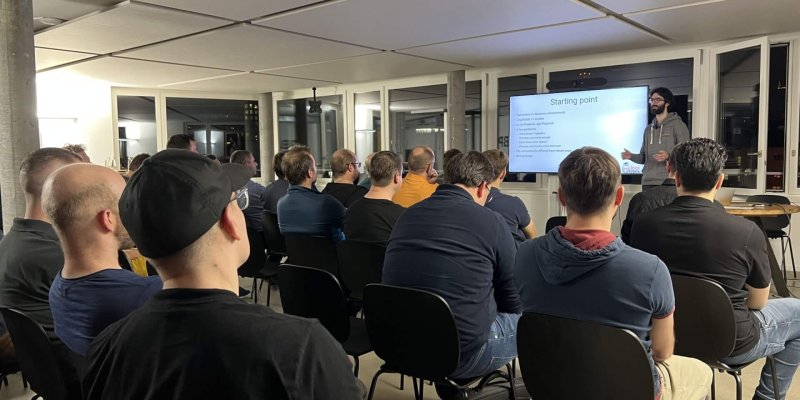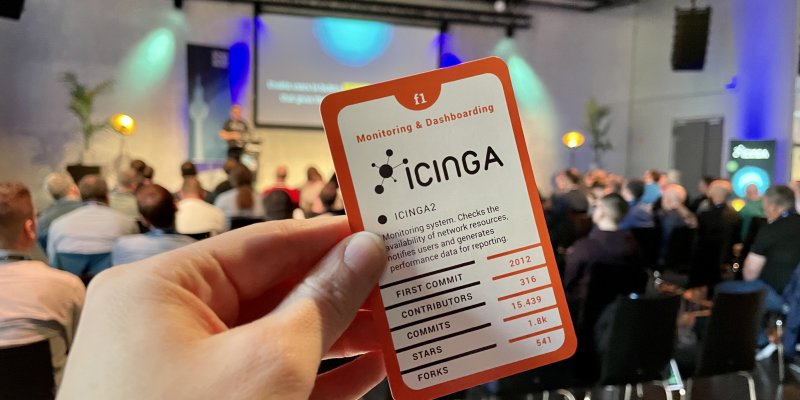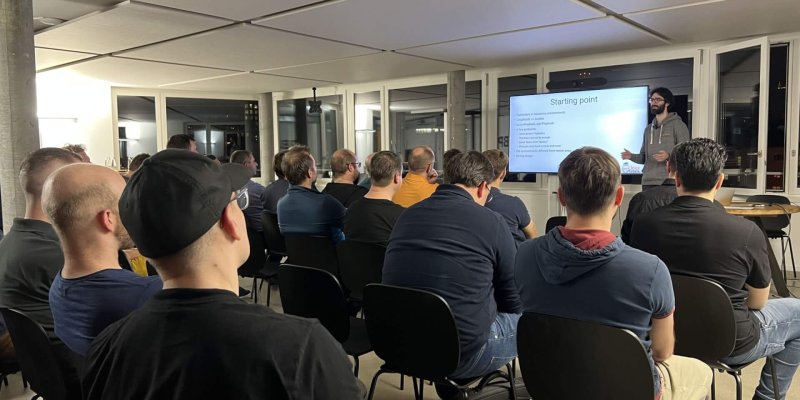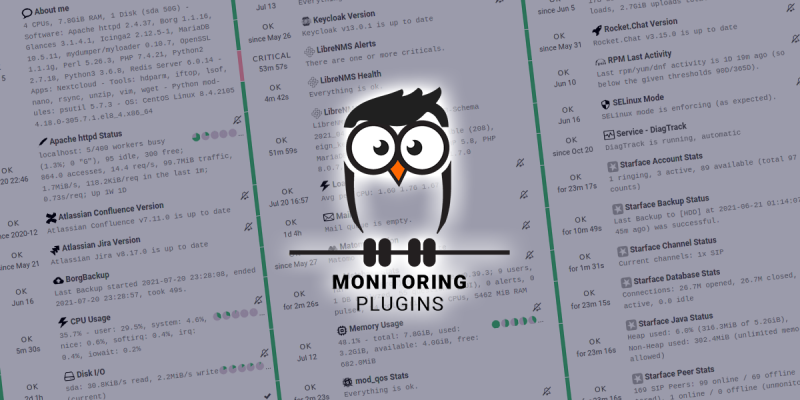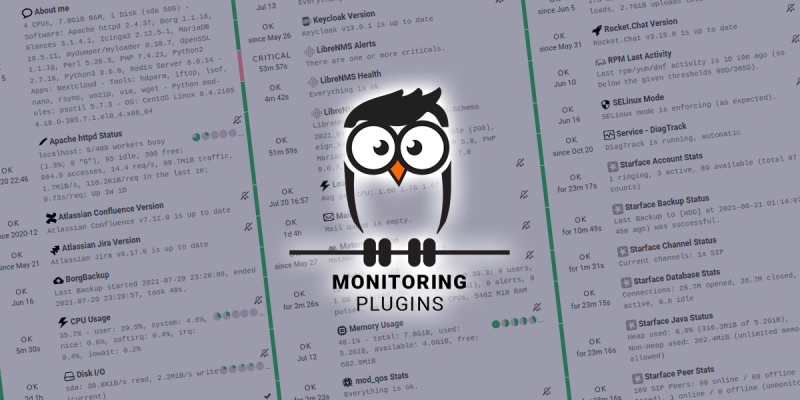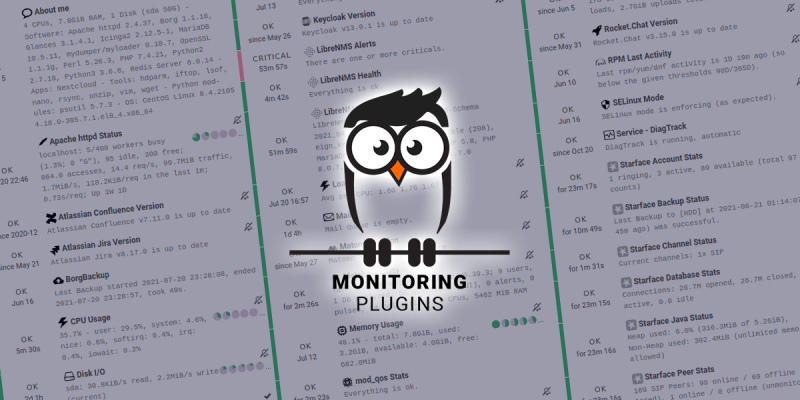This year we have been elected Contribution Tinkerer by the Icinga community with our Linuxfabrik monitoring plugins. You can find the details here. Thank you! 🙂
The Linuxfabrik has entered into a new business partnership with Graylog GmbH. Graylog Enterprise is the industry standard for IT Logging & Security and as a Graylog partner we offer all subscriptions that fit your environment.
For customers using Icinga for infrastructure monitoring: Icinga GmbH changed its business model a few weeks ago and put rpm packages for RHEL 8+, Amazon Linux and Suse Linux based operating systems behind a paywall. Access to the update repositories is now only available with an Icinga Repository Subscription. A paid Icinga Repository Subscription is required for 20 VMs or more, until then a free Developer Subscription is sufficient.
GNU/Linux.ch is a team of volunteer writers and podcasters who write and talk about GNU/Linux and everything related to it.
LFOps – our Ansible collection of roles, playbooks and plugins for managing Linux-based cloud infrastructures – has been released in version 2.0. What has changed since version 1.1?
Linuxfabrik presents LFOps Version 2.0.
Nice Icinga blog post about our Icinga Setup at SwissTPH company (where our Linuxfabrik Monitoring-Plugins are also used).
This time we came up with a little surprise for the end of the year: The Open Source Quartet – if it were advertised, it would surely be a great quartet game with wonderful logos for absolute open source fans.
Linuxfabrik presents LFOps in a presentation called "Managing RHEL-based datacenter influenced by DebOps" vor.
We couldn't attend in person due to time constraints, but we were mentioned with our monitoring plugins. Thanks, Bernd! 🙂
Markus Frei presents the Linuxfabrik Monitoring Plugins at the Icinga Camp in Berlin 2022.
More than 160 check plugins in total. 25 new checks for MySQL/MariaDB, all based on MySQLTuner. 7 new checks for NodeBB. New checks for strongSwan IPsec Connections, diacos, xml/wsdl and Infomaniak Swiss Backup. And as always: bugfixes and enhancements.
We hinted at it earlier this year, but now it is official: we are moving our hosting infrastructure, and with it our customers' virtual datacenters, to the cloud. How did this come about? What exactly does it mean?
LFOps is now also available on GitHub: LFOps is a collection of roles, playbooks, modules, and plugins for Ansible that we use to maintain cloud infrastructures in an automated way. The Ansible Collection can be installed as such and is also available on Ansible Galaxy.
Anyone who has an account on GitHub can now support us there via the GitHub Sponsors program with one-time or monthly payment amounts. GitHub Sponsors is currently still in beta and does not charge any fees – after that, 90% of the amount still reaches us.
As you know, our software developments are all open source (FOSS) and released under the Unlicense, but were previously hosted on our self-hosted GitLab server. While the idea of running our own GitLab server was initially appealing, it also has serious drawbacks in terms of FOSS.
The default Keycloak distribution is now based on Quarkus, which brings a number of breaking changes configuring Keycloak and deploying custom providers. The new distribution tends to be faster, leaner, and easier to configure.
Now our blog is also WordPress-based: For almost 18 months we maintained our blog via RST, and finally https://blog.linuxfabrik.ch has moved to https://www.linuxfabrik.ch/blog.
As announced, we will stop further development of the Python 2-based monitoring plugins on 01/01/2022 and will focus only on their Python 3 variants from now on.
Happy New Year 🙂
Dieses Release bietet mehr als 120 Plugins, von denen über 80 als EXE-Datei unter Windows ausgeführt werden können. Alle Plugins liegen ab sofort in einer Python 2- und Python 3-Version vor. Wie immer gibt es auch neue Checks, unter anderem für Jitsi, NodeBB, Redis und Veeam.
Rocket.Chat 4.0 wird am 27. September 2021 erscheinen und dann strikt in eine Community- und eine Enterprise-Edition getrennt. In der Community-Edition werden seit langem bestehende Funktionen wegfallen, die dann nur noch in der Enterprise-Edition zu haben sind.
CentOS entwickelt sich von einer verbraucherorientierten Distribution (Downstream von RHEL) zu einer Contributor-orientierten Distribution (Upstream von RHEL).
Unser LFS-Artikel ist übersetzt und das Titelthema des amerikanischen Linux-Magazins Nummer 251: Cover Theme – Linux From Scratch.





